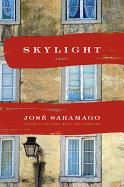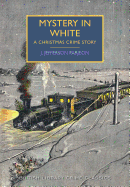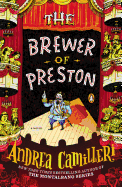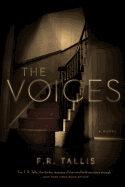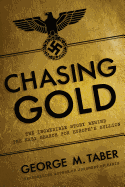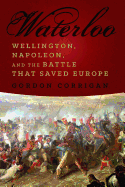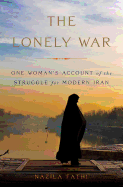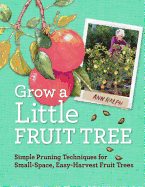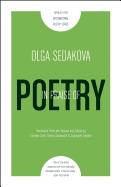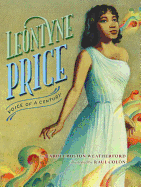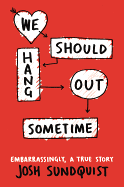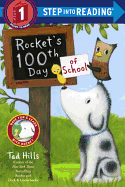 Think once the writing is done, it's all downhill? Not so, as Claude Knobler discovered with More Love, Less Panic: 7 Lessons I Learned About Life, Love, and Parenting After We Adopted Our Ethiopian Son, just published by Tarcher.
Think once the writing is done, it's all downhill? Not so, as Claude Knobler discovered with More Love, Less Panic: 7 Lessons I Learned About Life, Love, and Parenting After We Adopted Our Ethiopian Son, just published by Tarcher.
I had done what I'd always assumed was the hard part. I'd not only written a book, but had actually sold it. All that I had to do now was come up with a title and then get ready to pose for the photo for the back cover. I was thinking of wearing a tweed jacket. Something with elbow patches perhaps.
My book was about the lessons I'd learned about parenting after my wife, our two biological kids and I decided to adopt Nati, a five-year-old boy from Ethiopia. Raising my energetic, exuberant and downright goofy Ethiopian son had made it very clear to me that it really was nurture and not nature, and that the single best thing I could do as a parent was to stop pretending I could control every facet of my children's lives and instead just sit back and enjoy the ride. The book came, if not easily, then at least fairly quickly, and I was happy to get to relive those very strange days when my son and the rest of my family didn't speak the same language and yet still found ways to connect.
I figured it would take a few hours to slap a title on it and then I'd be done.
What followed instead were months of phone calls, e-mails and frantic conversations with friends, family, my agent, my editor and, yes, my dog Boise, as I tried desperately to come up with a title I could live with and my publisher could sell.
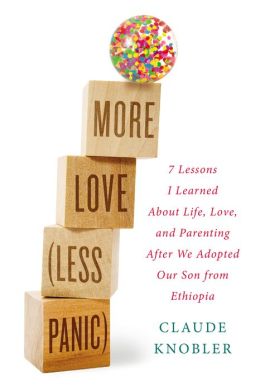 Happily, I did eventually find a title that I love. More Love, Less Panic: 7 Lessons I Learned About Life, Love, and Parenting After We Adopted Our Ethiopian Son is, I hope, easy to Google and remember and even more importantly, captures my central idea: that my children are better served by my loving and accepting them for who they are rather than desperately trying to change them into something they're not.
Happily, I did eventually find a title that I love. More Love, Less Panic: 7 Lessons I Learned About Life, Love, and Parenting After We Adopted Our Ethiopian Son is, I hope, easy to Google and remember and even more importantly, captures my central idea: that my children are better served by my loving and accepting them for who they are rather than desperately trying to change them into something they're not.
Here, however, are a few titles that didn't quite get the job done.
Totally Powerless and Utterly Happy. We'd been trying to come up with a title for a week or two, when I suggested this one. My agent liked it. My editor liked it. I called my wife to tell her the good news. My book, I proudly told her, was going to be called Utterly Powerless and Totally Happy. No. Wait. Totally Powerless and Utterly Happy. No, wait.... You know what's a really bad sign for a book title? When the author can't remember it. To this day, I honestly can't remember if I nearly called my book Totally Powerless and Utterly Happy or Totally Happy and Utterly Powerless. Unless, of course, it was Utterly Happy and Totally Confused. Yeah, that might have been it.
Where There Is Always Dancing. There is an African proverb that goes, "Where there is always dancing a child can not fail to dance." I liked the sound of this one, and the idea that the best way to teach a child how to have a happy and productive life is simply to let them see you have a happy and productive life of your own made a lot of sense to me. On the other hand, my son is Ethiopian. The proverb is South African. Alberta, Canada, and Ecatepec, Mexico, are in the same continent too, but you'd feel pretty silly lumping them together, right?
First Words Last. I kept trying to convince my editor at Penguin/Tarcher, Sara Carder, to like this one, and to her infinite credit, she never did. My thinking was that your first words were how you set the tone of your child's actions and that therefore there was no need to have the last... you know what? I honestly don't remember what I was thinking. First Words Last means what exactly? Your guess is as good as mine.
Okay, now things were getting pretty dire. I had taken to having very animated conversations with Boise while I took him on a series of longer and longer walks. I'd suggest titles and then argue with Boise when he didn't seem to like them. I offered my kids cuts of the book's advance if they came up with anything that worked (Very small cuts. Very, very small cuts.) One day Nati (now 16) came up to me with what I'll charitably call a sly smile and said he had an idea. My Struggle. I paused for half a second and then told my child that no, I wouldn't be calling my book, My Struggle, since as he and I both knew that translated into Mein Kampf in German, a title which had already been used once by someone I had no wish to copy. In case you're wondering, no, I have no idea whether or not Nati gave the same suggestion to the bestselling, now world-famous Norwegian memoirist Karl Ove Knausguard, before he titled his work My Struggle, but I do know that I really should listen to my kid more often.
 You Can't Turn an Ethiopian into a Neurotic Jew. Well, it's true, you can't. And trust me, I tried. Anyone who has two kids who share parents but not personalities knows that children seem to come out of the womb with their own identities already built in. Learning that it wasn't my job to control and mold my children into the people I thought they should be left me a much better, freer and happier parent. On the other hand... would people really want to buy a book if they thought its goal was helping you to make your child neurotic? (I also toyed with African Matzo, before realizing that it made no sense whatsoever. Still, never let it be said that I didn't try to squeeze all the juice out of every bad idea I ever had.)
You Can't Turn an Ethiopian into a Neurotic Jew. Well, it's true, you can't. And trust me, I tried. Anyone who has two kids who share parents but not personalities knows that children seem to come out of the womb with their own identities already built in. Learning that it wasn't my job to control and mold my children into the people I thought they should be left me a much better, freer and happier parent. On the other hand... would people really want to buy a book if they thought its goal was helping you to make your child neurotic? (I also toyed with African Matzo, before realizing that it made no sense whatsoever. Still, never let it be said that I didn't try to squeeze all the juice out of every bad idea I ever had.)
As Is/Nati & Me/The Road Home/Perfectly Imperfect/In Every Language/In Any Language/Out of Control and Over the Moon/Apples from Oak Trees/Imperfectly Ever After/Out of Africa and, best of all, The White Album. Yeah, after about three months of looking for a title, things got a little crazy. I think I spent about a solid month suggesting no less than five titles a day. That last one on the list was my semi-joking suggestion that we use a plain white jacket with no title at all. Hey, it worked for the Beatles, right?
Everybody Loves a Lubba-Lubba. When Nati had been home with us for about a month, he began singing what we came to think of as "the mishashu song." He'd sing out "Mishashu!'" and then answer himself with a hearty chorus of "a lubba-lubba." It was all gibberish, the words weren't English and they weren't his native tongue of Amharic, either. Naturally, I worried that this sort of thing might lead to the other kids at school thinking he was sort of weird... until, that is, the song caught on and became a sort of craze at his elementary school. All of which proved that when it came to my kids, I wasn't very good at knowing what to worry about. In fact, I was so bad at knowing what to worry about that I eventually decided I might just as well give up worrying altogether. My wonderful editor, Sara, however, had apparently not given up worrying and so was more than a little concerned that no one would know what the hell this title meant or how to spell it. Not everybody actually does love a lubba-lubba.
More Love, Less Panic: 7 Lessons I Learned About Life, Love and Parenting After We Adopted Our Ethiopian Son. Perfect. And if any authors out there want to use the one about lubba-lubba-ing, they're more than welcome to it. --Claude Knobler, morelovelesspanic.com
The Seven Mostly Awful Titles I Nearly Used for My First Book
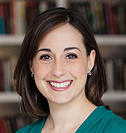 We all start off the year with a clean slate. But some of the things you didn't do in 2014 will creep into 2015. Never fear, here's a short list of ways to excel at list-making:
We all start off the year with a clean slate. But some of the things you didn't do in 2014 will creep into 2015. Never fear, here's a short list of ways to excel at list-making: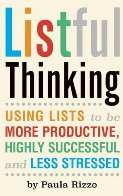 Book Lovers Bonus!
Book Lovers Bonus!


 Think once the writing is done, it's all downhill? Not so, as
Think once the writing is done, it's all downhill? Not so, as  Happily, I did eventually find a title that I love. More Love, Less Panic: 7 Lessons I Learned About Life, Love, and Parenting After We Adopted Our Ethiopian Son is, I hope, easy to Google and remember and even more importantly, captures my central idea: that my children are better served by my loving and accepting them for who they are rather than desperately trying to change them into something they're not.
Happily, I did eventually find a title that I love. More Love, Less Panic: 7 Lessons I Learned About Life, Love, and Parenting After We Adopted Our Ethiopian Son is, I hope, easy to Google and remember and even more importantly, captures my central idea: that my children are better served by my loving and accepting them for who they are rather than desperately trying to change them into something they're not.  You Can't Turn an Ethiopian into a Neurotic Jew. Well, it's true, you can't. And trust me, I tried. Anyone who has two kids who share parents but not personalities knows that children seem to come out of the womb with their own identities already built in. Learning that it wasn't my job to control and mold my children into the people I thought they should be left me a much better, freer and happier parent. On the other hand... would people really want to buy a book if they thought its goal was helping you to make your child neurotic? (I also toyed with African Matzo, before realizing that it made no sense whatsoever. Still, never let it be said that I didn't try to squeeze all the juice out of every bad idea I ever had.)
You Can't Turn an Ethiopian into a Neurotic Jew. Well, it's true, you can't. And trust me, I tried. Anyone who has two kids who share parents but not personalities knows that children seem to come out of the womb with their own identities already built in. Learning that it wasn't my job to control and mold my children into the people I thought they should be left me a much better, freer and happier parent. On the other hand... would people really want to buy a book if they thought its goal was helping you to make your child neurotic? (I also toyed with African Matzo, before realizing that it made no sense whatsoever. Still, never let it be said that I didn't try to squeeze all the juice out of every bad idea I ever had.)